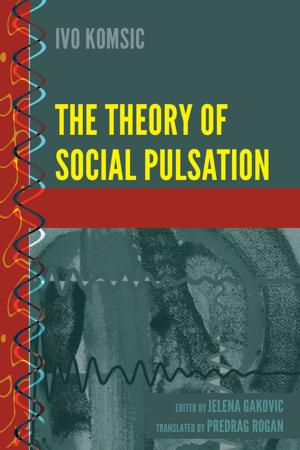«Die Welt war meine Gemeinde»- Willem A. Visser t Hooft
A Theologian for Europe between Ecumenism and Federalism
Nonfiction, History, European General, Social & Cultural Studies, Political Science, Politics, History & Theory| Author: | ISBN: | 9783035299366 | |
| Publisher: | Peter Lang | Publication: | January 19, 2015 |
| Imprint: | Peter Lang AG, Internationaler Verlag der Wissenschaften | Language: | English |
| Author: | |
| ISBN: | 9783035299366 |
| Publisher: | Peter Lang |
| Publication: | January 19, 2015 |
| Imprint: | Peter Lang AG, Internationaler Verlag der Wissenschaften |
| Language: | English |
Willem A. Visser ’t Hooft (1900–1985), Dutch pastor and theologian, was one of the most significant personalities in the Protestant Ecumenical movement. Deeply influenced by Karl Barth, and filled with a strong Ecumenical spirit, he was closely involved in the founding of the World Council of Churches, of which he was elected General Secretary. During the Second World War, many Protestants became convinced of the need for an international political system which, beside uniting the nations and peoples of Europe, would guarantee them fundamental freedoms and mutual respect for their historical, cultural and confessional traditions.
The directors of the WWC were strongly committed to federalism, partly because of the political traditions of the states from which their member churches originated (Switzerland; Great Britain and its Commonwealth; the United States), and partly because of their conviction that a simple confederation of states, based on the model of the League of Nations, would be completely incapable of containing national ambitions. In spring 1944, Visser ’t Hooft welcomed into his Geneva home the representatives of the European Resistance, who, under the leadership of Altiero Spinelli and Ernesto Rossi, signed the International Federalist Declaration of the Resistance Movements. These historic transnational encounters, aimed not only at coordinating military action or seeking diplomatic contacts but at exploring ways to «build» peace and re-establish the future of the Continent on new foundations, marked a profound break with the past.
Willem A. Visser ’t Hooft (1900–1985), Dutch pastor and theologian, was one of the most significant personalities in the Protestant Ecumenical movement. Deeply influenced by Karl Barth, and filled with a strong Ecumenical spirit, he was closely involved in the founding of the World Council of Churches, of which he was elected General Secretary. During the Second World War, many Protestants became convinced of the need for an international political system which, beside uniting the nations and peoples of Europe, would guarantee them fundamental freedoms and mutual respect for their historical, cultural and confessional traditions.
The directors of the WWC were strongly committed to federalism, partly because of the political traditions of the states from which their member churches originated (Switzerland; Great Britain and its Commonwealth; the United States), and partly because of their conviction that a simple confederation of states, based on the model of the League of Nations, would be completely incapable of containing national ambitions. In spring 1944, Visser ’t Hooft welcomed into his Geneva home the representatives of the European Resistance, who, under the leadership of Altiero Spinelli and Ernesto Rossi, signed the International Federalist Declaration of the Resistance Movements. These historic transnational encounters, aimed not only at coordinating military action or seeking diplomatic contacts but at exploring ways to «build» peace and re-establish the future of the Continent on new foundations, marked a profound break with the past.















